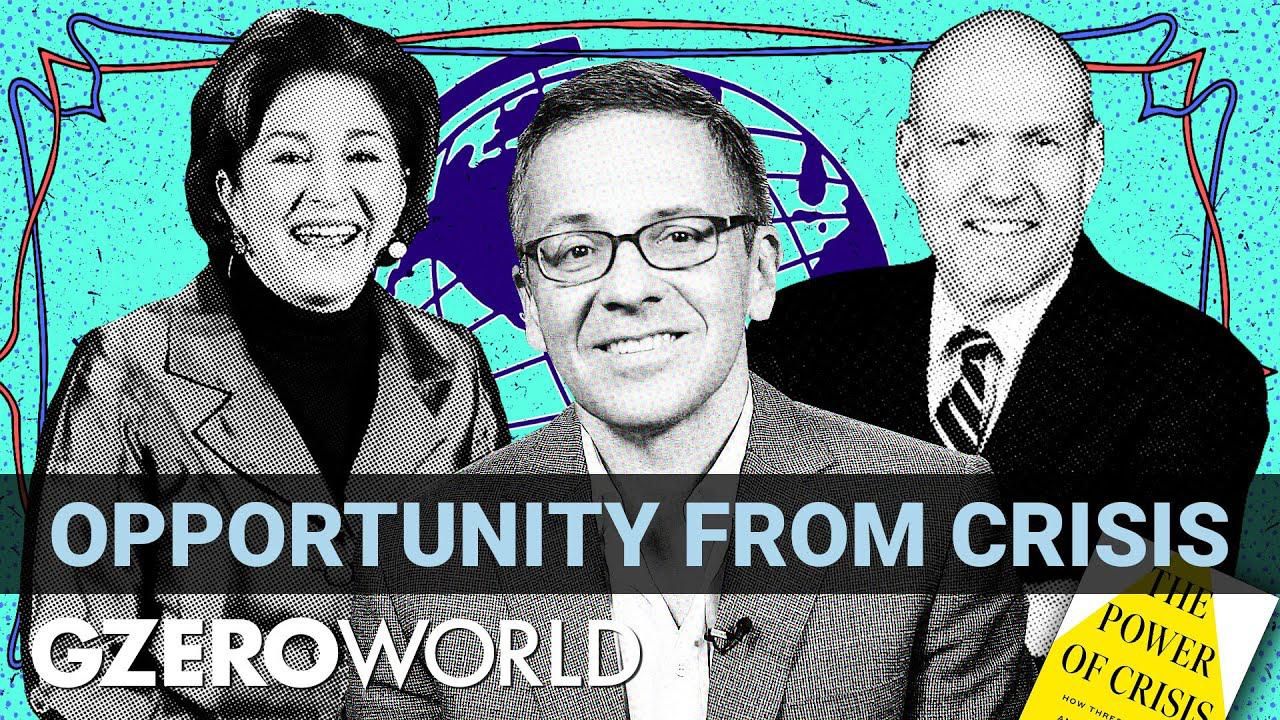GZERO World with Ian Bremmer
Hope as major crises intersect

Finding the Endgame in Ukraine & Hope as Major Crises Intersect | GZERO World with Ian Bremmer

To fix our broken international political system, we need a crisis. For instance, a pandemic, climate change, or Big Tech having too much power.
But it must be a crisis that's so destructive it forces us to respond fast, and together — like World War II.
On GZERO World, Ian Bremmer talks to Anne-Marie Slaughter, former US State Department official and now CEO of New America, and political scientist and Harvard professor Stephen Walt about the Ukraine war and other crises.
Slaughter and Walt debate key issues such as the tough choices NATO faces on expanding to more countries but not Ukraine or other former Soviet republics, what we learned from the pandemic, and whether there are still reasons for hope in our current gloomy political environment.
By the way, Ian has a new book out, "The Power of Crisis," where he looks at three looming challenges, and what we should do about them so we are not caught unprepared next time.
In this Quick Take, Ian Bremmer addresses the killing of Alex Pretti at a protest in Minneapolis, calling it “a tipping point” in America’s increasingly volatile politics.
Who decides the boundaries for artificial intelligence, and how do governments ensure public trust? Speaking at the 2026 World Economic Forum in Davos, Arancha González Laya, Dean of the Paris School of International Affairs and former Foreign Minister of Spain, emphasized the importance of clear regulations to maintain trust in technology.
Will AI change the balance of power in the world? At the 2026 World Economic Forum in Davos, Ian Bremmer addresses how artificial intelligence could redefine global politics, human behavior, and societal stability.
Ian Bremmer sits down with Finland’s President Alexander Stubb and the IMF’s Kristalina Georgieva on the sidelines of the World Economic Forum to discuss President Trump’s Greenland threats, the state of the global economy, and the future of the transatlantic relationship.